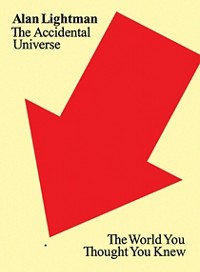Advertisement
Grab your lab coat. Let's get started
Welcome!
Welcome!
Create an account below to get 6 C&EN articles per month, receive newsletters and more - all free.
It seems this is your first time logging in online. Please enter the following information to continue.
As an ACS member you automatically get access to this site. All we need is few more details to create your reading experience.
Not you? Sign in with a different account.
Not you? Sign in with a different account.
ERROR 1
ERROR 1
ERROR 2
ERROR 2
ERROR 2
ERROR 2
ERROR 2
Password and Confirm password must match.
If you have an ACS member number, please enter it here so we can link this account to your membership. (optional)
ERROR 2
ACS values your privacy. By submitting your information, you are gaining access to C&EN and subscribing to our weekly newsletter. We use the information you provide to make your reading experience better, and we will never sell your data to third party members.
Environment
Intelligent Science
January 8, 2007
| A version of this story appeared in
Volume 85, Issue 2
"Judging Science" brought out an emotional aspect of intelligent design (C&EN, Nov. 27, 2006, page 32). Darwin, like Jean-Baptiste Lamarck, believed in pangenesis, so no one is a true Darwinist today. As a child, I was taught neo-Darwinism in public school. We've now moved on to post-neo-Darwinism, and who knows what will be next. I've lost count of how many theories of cosmogony I've learned.
A growing number of scientists, including full professors at secular universities, are using math or science to challenge the theories of origins found in biology, geology, and astronomy. Yet these theories are still taught as fact to students of all ages.
Too many believers in special creation are undereducated. As long as many religious groups replace, instead of complement, academic excellence with evangelistic zeal, this will continue. But true scientists who point to intelligent design or to special creation are marginalized. Challenging evolution scientifically in a public school can expose the school to legal action, so the classroom presentation is as politically determined as it is scientifically. Some of the "facts" supporting evolution have turned out to be false or even fraudulent, but they continue to be taught as truth.
There are religious and philosophical differences between intelligent design and other theories of age and origins, such as evolution, the Big Bang theory, and uniformitarianism. But the scientific evidence for every theory should be laid out for everyone to see. We laugh when we read that some people refused to look through Galileo's telescope lest they be deceived, then we go to the courts to prevent a full disclosure of the evidence needed for the debate.
Howard M. Merken
Chattanooga, Tenn.
We all feel good when someone agrees with our belief or faith. It is human nature. I suppose it affirms and makes us feel better about ourselves. We may, though, not want to hear what others with different beliefs say in counterpoint. We may close our ears to what they say and may even call it railing. Although affirmation by others of what we believe may make us feel good, it doesn't necessarily affirm truth. I would raise the question as to whether disrespectful consideration of the findings and investigations of others who hold different views from our own regarding issues of faith or theories that have not been proven is good science.
Roger Bokeny
Oak Island, N.C.
Darwin's theory of biological evolution published in 1859 didn't include or consider Gregor Mendel's fundamentals of heredity. Later adherents have proposed hopeful improvements in the theory and even attempted to retitle it. It is misrepresented as scientific reality without the backing of natural or experimental evidence.
The Fossil Record of the past 4 billion years does not support it nor does any evidence of the molecular or other levels. Geologists who favor it have failed to reveal any substantiating proof. Berkeley University law professor Phillip E. Johnson's "Darwin on Trial" (Regnery, 1991) is a devastating indictment of Darwinism, which is speculation without evidence: pseudoscience.
Intelligent design concludes that the complexity of biological and other elements, i.e., their design, is impossible to come by through helter-skelter randomness as proposed by Darwinism. Our digestive system converts a morsel of bread into muscle energy. Our eyes translate light waves into vision. How can randomness produce the myriad of complex and integrated human elements and characteristics?
Akbar F. Brinsmade
Biloxi, Miss.
The brilliant Christian author C. S. Lewis repeatedly reminded his readers of the great religious disputes of the past—burning issues in their day (the language is not, alas, mere metaphor)—which later were forgotten as utterly meaningless. It is a safe prediction that today's intelligent design "controversy" will soon go the way of its predecessors, to be remembered only by connoisseurs of intellectual oddities.
Erwin Klingsberg
Washington, D.C.




Join the conversation
Contact the reporter
Submit a Letter to the Editor for publication
Engage with us on Twitter